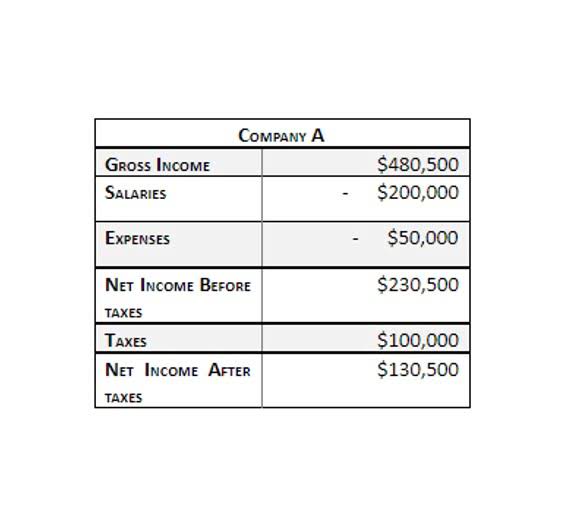
We’ll explain what cash and cash equivalents are, discuss different types and exclusions, and outline how to calculate them. These financial instruments are essentially loans to a country’s government. Investors front the money and in return get a fixed rate of interest until the loan is eventually paid back. Willing to know more about cash equivalents, their purposes, types, features, and how to manage them effectively?
What Are Cash and Cash Equivalents (CCE)?
Some lenders require companies to maintain a sufficient level of CCE to qualify for loans and may offer those with higher balances more attractive borrowing terms. Seeing a decent amount of CCE reassures lenders that the company is better equipped to deal with setbacks. Inventory isn’t considered a cash equivalent because it might not be easily sellable, and it’s impossible to say with certainty how much money it would fetch in a quick sale. So, for an investment to qualify as a cash equivalent, it must be short-term, have a maximum duration of 90 days, and be easily sellable for a known price. The “known amount of cash” clause implies the investment cannot be subject to major price shifts. Cash is generally intended as a wage, and usually provides no administrative burden to account for.
- Cash equivalents are designed to be low-risk investments, providing stable returns with minimal volatility.
- Typically, commercial paper has maturities ranging from a few days to nine months.
- Commercial paper is a short-term, unsecured debt obligation primarily issued by financial institutions and large corporations.
- These highly liquid assets are essential for covering a company’s immediate financial requirements, like meeting payroll or paying bills and debt obligations.
- For example, if your company has money market funds (such as stock in another company) that are easily converted into cash, this would be considered a cash equivalent.
- CCE is an important financial number for a business, as the total helps investors and companies determine how well a company is positioned to handle short-term cash needs.
- These instruments are considered among the safest investments since they are backed by the full faith and credit of the US Government.
Cash and Cash Equivalents

The interest earned is usually higher than that earned from a basic bank account and provides some protection against inflation. A certificate of deposit is a type of savings account with a financial institution. It represents a certain amount of a saver’s capital that can’t be accessed by the saver for a specific period of time. In return for the use of their capital, the financial institution pays savers a fixed rate of interest.
- The balance is shown on the balance sheet, under current assets, and is used to assess the company’s liquidity position.
- They provide a company with the liquidity it needs to pay for short-term expenses and to invest in new projects.
- T-bills are a safe, guaranteed investment that can be cashed in at any time.
- In simple words, cash and cash equivalents are those assets which are immediately converted into cash.
- T-bills are considered one of the safest investments because they are backed by the full faith and credit of the issuing government.
5.3 Restricted cash and restricted cash equivalents
Companies with high CCE balances are considered financially healthy and better positioned to weather downturns, which could result in more stable stock performance. Furthermore, it is also essential that respective dollar amounts for all the cash equivalents are also known. The value of these cash equivalents should not be expected what are retained earnings to change significantly before redemption or maturity. Cash and Cash Equivalents mainly refer to the line items on the Balance Sheet that represent the underlying value of the company’s assets that are in the form of cash or any other liquid form of cash. For example, maybe the management has not figured out the best way to deploy cash.

- From an organizational perspective, it can be seen that cash and cash equivalents are considered highly important because it reflects the ability of these companies to meet their day-to-day expenses.
- Cash equivalents are defined as short-term investments that can be quickly converted into cash while incurring a minimal loss in value.
- Below are the primary characteristics that define cash equivalents and their unique advantages.
- However, both types of financial instruments are very similar and yield similarly low yields.
- Inventory that the company has present on hand should also never be classified as cash and cash equivalent because it cannot be readily converted to cash.
- For example, maybe the management has not figured out the best way to deploy cash.
- In case, if a company falls due, it should have sufficient cash and cash equivalents to meet its urgent liabilities.
Such misclassification can distort the liquidity position presented in the financial statements, leading to incorrect assessments by investors and analysts. These distinctions are crucial for accurate financial analysis and reporting. While all current assets contribute to a company’s short-term liquidity, cash equivalents represent the most liquid and least risky portion, providing a reliable source of funds for immediate needs. Both IFRS and US GAAP emphasize the importance of liquidity and risk management in the classification of cash equivalents. Short-term government bonds are debt securities issued by national, state, or local governments with maturities of three months or less. Like Treasury bills, these bonds are highly liquid and carry cash equivalent definition minimal risk due to the backing of the issuing government.
Cash and Cash Equivalents (CCE)
They have a maturity of three months or less with high credit quality, and are unrestricted so that it is available for immediate use. They help the business meet immediate expenses or make short-term investments. Cash and cash equivalents are part of the current assets section of the balance sheet and contribute to a company’s net working capital (NWC). The definition of cash equivalents presumes these are highly liquid investments.
What are the Advantages of the Balance Sheet? Explained
- However, it still has USD 500,000 in CCE that can be used to pay for short-term expenses.
- Cash and cash equivalents (CCE) refer to the assets a company holds that can be quickly converted into cash, providing high liquidity.
- Another emerging trend is the growing preference for sustainable and socially responsible investments within the realm of cash equivalents.
- Certificates of deposit (CDs) are time deposits offered by banks and credit unions, with a fixed interest rate and a specified maturity date.
- The difference between the purchase price and the face value at maturity represents the interest earned by the investor.
- These highly liquid assets are essential for businesses to meet short-term obligations without incurring significant losses.
A balance sheet line that includes cash, checking accounts, and certain marketable securities that are very close to their maturity dates. A business’s cash equivalents are shown at the top of the balance sheet and cash as these assets are the most liquid. Cash and QuickBooks ProAdvisor Cash Equivalents are an important part of any company’s financial strategy.

Issued by corporations, commercial paper represents short-term debt instruments that mature in less than 270 days. They typically offer higher returns than T-Bills but maintain a low risk level due to their short maturity and investment-grade rating. Cash equivalents have certain benefits over cash that make them better for some investors. However, both types of financial instruments are very similar and yield similarly low yields. A grey area of cash equivalents relates to certificate of deposits for terms longer than 3 months that can not be broken.

High Credit Quality
There are several important reasons why a company should store some of its capital in cash equivalents. A banker’s acceptance is a form of payment that is guaranteed by a bank rather than an individual account holder. Because the bank guarantees payments, this short-term issuance is considered to be cash. Bankers’ acceptances are frequently used to facilitate transactions where there is little risk for either party.
These highly liquid assets are often grouped with cash on the balance sheet, providing a clear picture of the resources available to meet short-term obligations. Apple’s balance sheet shows a robust liquidity position, with cash and cash equivalents forming a significant portion of its current assets. The detailed notes to the financial statements provide a breakdown of these cash equivalents, highlighting the company’s conservative approach to cash management. This strategy ensures that Apple can quickly mobilize funds for strategic investments or weather economic downturns without financial strain. Cash includes currency, bank accounts, and any other forms of money readily available for use.
